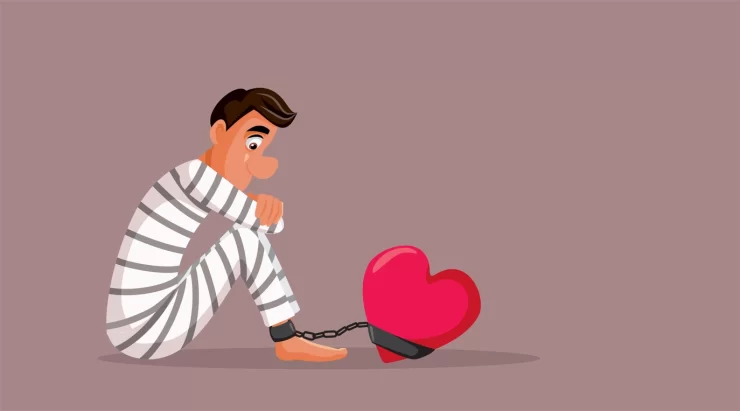In the previous article, we listed the 9 main criteria of emotional dependency as well as some criteria of a toxic relationship. Now that the groundwork has been laid, we will delve into some of these criteria to better understand how some Runners operate.
In this article, we will explore a certain type of behavior exhibited by runners in romantic relationships observed during coaching sessions with runners. Naturally, this may not apply verbatim to all runners but should be taken as indicative of a trend.
Criteria No. 1 – having difficulty making decisions without the advice or validation of others.
Alone, the emotionally dependent individual experiences a profound sense of powerlessness in the face of life. This powerlessness will lead them to feel almost perpetually insecure. This feeling will then be like a constant background noise, varying in intensity on a daily basis.
To exaggerate a bit, we can almost consider the emotionally dependent person to be in “survival mode” on a daily basis. Their goal will be to alleviate this feeling of insecurity by any means necessary. But in their quest for well-being, the Runner becomes dependent on their own solution, just like any person using coping mechanisms.
Indeed, their entire strategy will focus on treating the symptoms rather than the cause.
They will then become dependent on their own solution.
The Runner’s main solution is to transfer their responsibilities, and therefore their personal power, to another person, such as a partner, for example. This person will be with the Runner 24/7, making them the ideal target to alleviate their discomfort most of the time.
This is why Runners would prefer a thousand times to be poorly accompanied than to be alone… The partner will take on the role of Savior and allow the Runner to move from discomfort to a sense of well-being.
Except that when you save a Runner, they are indebted to you for life and will cling to you like a castaway to their lifebuoy.
And of course, this doesn’t fall on deaf ears, and the partner will not hesitate, in times of crisis, to hit where it hurts to get what they want. That’s why we call it a toxic relationship.
Criteria No.2 – Relying on others to assume responsibilities in important areas of life
Since the Runner is not truly autonomous, they will delegate their responsibilities to their partner, who will be delighted to play that role. In making this decision, the Runner makes a fundamental mistake, associating the assistance provided with love.
Alone, they feel bad. Assisted, they feel better.
With the partner now making decisions and assuming responsibilities (to a certain extent), this allows the Runner to have the best of both worlds without the drawbacks!
This will further accentuate the Runner’s sense of powerlessness because, essentially, it’s like being in school where, being bad at math, your best friend does your homework for you. You don’t make any progress, but you get good grades.
This will also increase their dependence on their partner: to get good grades, you need your best friend… Without your friend, no good grades. In other words, you will now pay particular attention to your relationship to ensure that they continue to do your homework for you.
The Runner will then shape their personality, make concessions, adopt their partner’s opinion, and be willing to do things they don’t want to do while pretending to enjoy them…
Why? To maintain this “better-being,” because alone, it’s a sure panic.
The problem is that over time and repetition, the Runner will condition themselves and no longer know who they are and what truly suits their tastes. They will have lost themselves in the maze of their lies.
By doing so, the Runner will continue to get what they want: presence, assistance, security, and therefore a sense of well-being. You understand the basic mechanisms of dependence… But it’s not over!
If one day the Runner wants to end the relationship, like when they meet their Chaser, for example, they will then have a hard time doing so because, at that moment, the feeling of guilt will gnaw at them from head to toe.
This leads us to criterion number 3 of emotional dependence.
To go further :
- You can find us on instagram here.
- You can book a session here.
- I invite you to read my introduction on the why of this blog
- Original post on my French Blog here.













Add comment